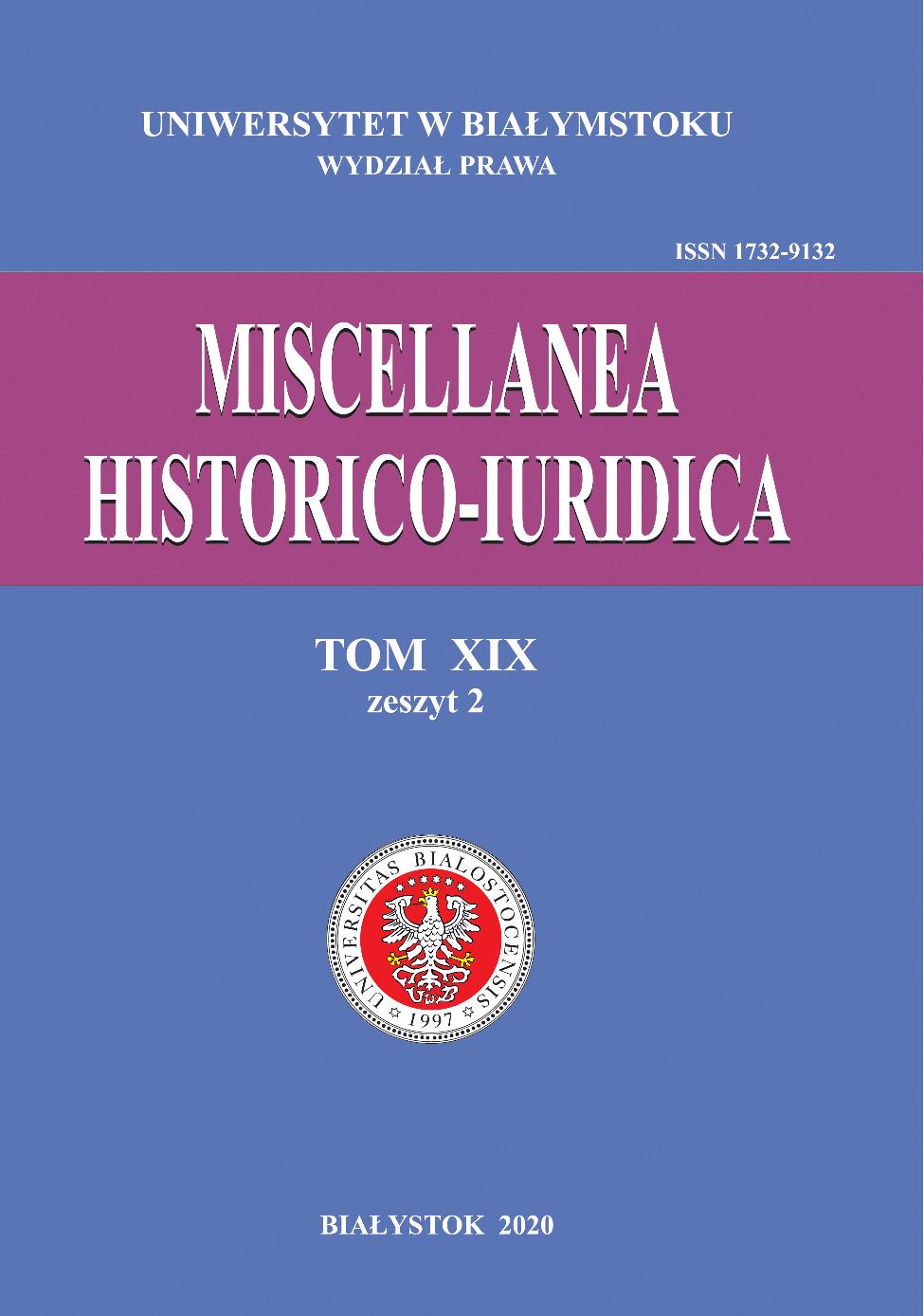David Lloyd George and the Polish matter during the Versailles Conference
Keywords:
David Lloyd George, Treaty of Versailles, World War I, Paris Peace Conference, PolandAbstract
The Treaty of Versailles was signed after several months of deliberations at a peace conference convened to Paris after the end of World War I on 28 June 1919 in Paris by Germany and the Entente countries. It entered into force on 10 January 1920, i.e., on the day of its ratification. Delegations of 27 winning countries participated in the peace conference in Paris. The treaty completely changed the map of Europe and the prevailing political order. Many small countries found their place on the map, including the Republic of Poland re-emerging on the maps of Europe, although in smaller territorial ownership than before the Partition of Poland. The Polish delegation, including among others: Ignacy Jan Paderewski and Roman Dmowski, tried their best to restore the Poles to their lands. Lands which, as a result of the Partition, came under the rule of three powers, namely: Prussia, Austria, and Russia. However, the peace conference in Paris showed much reluctance on the part of the Big Five, which decided about the fate of post-war Europe towards Poland. Expectations of the Poles that their case would be supported by friendly British, American, or French politicians turned out to be deceptive. Especially the French, who seemed very favourable to Poland, at the peace conference completely obeyed the will of the British, who even intended to prevent the Poles in their quest to restore the pre-partition Polish borders. The British Prime Minister David Lloyd George, who turned out to expose his unfavourable attitude towards the Polish cause, was so uncompromising in his position that no arguments invoked by the Polish delegation appealed to him.
References
Batowski H., Między dwoma wojnami 1919-1939. Zarys historii dyplomatycznej, Kraków 2001.
Cienciała A. M., Polityka Brytyjska wobec Odrodzenia Polski 1914-1918, ,,Zeszyty Historyczne’’ 1969, nr 16.
Czubiński A., Historia Powszechna XX wieku, Poznań 2003.
Davies N., Boże igrzysko. Historia Polski, Kraków 2007.
Davies N., Lloyd George i Polska 1919-1920, Gdańsk 2000.
Dillon E.J., Konferencja Pokojowa w Paryżu 1919, Warszawa 1921.
Drozdowski M.M., Ignacy Jan Paderewski, Warszawa 1986.
Fiedorczyk P., Lityński A., Stawarska-Rippel A., Wojny XX wieku i ich skutki dla ustrojów państwowych i prawa, „Czasopismo Prawno-Historyczne” 2019, t. LXXI, z. 1.
Karaszewski P., Kryzys autorytetu Foreign Office w latach 1914-1922, „Dzieje Najnowsze” 1977, z. 2.
Karski J., Wielkie Mocarstwa wobec Polski 1919-1945. Od Wersalu do Jałty, Warszawa 1988.
Kuk L., Między wielkością a małością. Polska wobec koncertowej kakofinii mocarstw na przełomie swych dziejów (1914-1945), „Kwartalnik Historyczny” 2017, z. 1.
Lapter K., Sprawa Gdańska i dostępu Polski do morza na Konferencji Paryskiej 1919 r., „Przegląd Historyczny” 1954, nr 2-3.
Lloyd George D., Prawda o traktacie wersalskim, T. I-II, Warszawa 1938.
Nelson I.H., Land and Power, British and Allied Policy on Germany’s Frontiers 1916-1919, London 1963.
Nowak A., Pierwsza Zdrada Zachodu. Zapomniany Appeasement, Kraków 2016.
Płygawko D., Sienkiewicz w Szwajcarii, Poznań 1986.
Prokop K., Dyktatura brytyjskiego gabinetu w czasie I wojny światowej, [w:] Prawo, parlament i egzekutywa we współczesnych systemach rządów: księga poświęcona pamięci Profesora Jerzego Stembrowicza, red. S. Bożyk, Białystok 2009.
Samsel K., Publicystyka niepodległościowa Josepha Conrada i jej postromantyczne uwikłania, „Perspektywy Kultury” 2019, t. 24, nr 1.
Sierpowski S., Studia do historii powszechnej okresu międzywojennego. Tom I, Poznań 1989.
Sprawy polskie na konferencji pokojowej w Paryżu w 1919 roku. Dokumenty i materiały. Tom I, red. R. Bierzanek, J. Kukułka, Warszawa 1965.
Sprawy polskie na konferencji pokojowej w Paryżu w 1919 roku. Dokumenty i materiały. Tom II, red. R. Bierzanek, J. Kukułka, Warszawa 1967.
Sprawy polskie na konferencji pokojowej w Paryżu w 1919 roku. Dokumenty i materiały. Tom III, red. R. Bierzanek, J. Kukułka, Warszawa 1968.
Sukiennicki W., Balfour a Polska, ,,Zeszyty Historyczne’’ 1970, nr 17.
Traktat między głównemi Mocarstwami sprzymierzonemi i stowarzyszonemi a Polską, podpisany w Wersalu w dniu 28 czerwca 1919 r. (Dz.U. 1920 nr 110, poz. 728).
Traktat pokoju między mocarstwami sprzymierzonemi i skojarzonemi i Niemcami, podpisany w Wersalu 28 czerwca 1919 r. (Dz.U. 1920 nr 35, poz. 200).
Ustawa z dnia 31 lipca 1919 r. o ratyfikacji traktatu pokoju (Dz.U. z 1920 nr 35, poz. 199).
Watt M.R., Gorzka chwała. Polska i jej los 1918-1939, Warszawa 2007.
Wilamowski M., Wnęk K., Zyblikiewicz A.L., Leksykon polskich powiedzeń historycznych, Kraków 1999.
Złotkiewicz-Kłębukowska J., Od Balfoura do Curzona. Polityka Wielkiej Brytanii wobec odradzającej się Polski, „Annales Universitatis Mariae Curie-Skłodowska. Sectio F – Historia” 2009, vol. LXIV.
Downloads
Published
Issue
Section
License
Copyright (c) 2021 Uniwersytet w Białymstoku (entire issue as a whole); Tadeusz Dziedzic (article)

This work is licensed under a Creative Commons Attribution-ShareAlike 4.0 International License.







